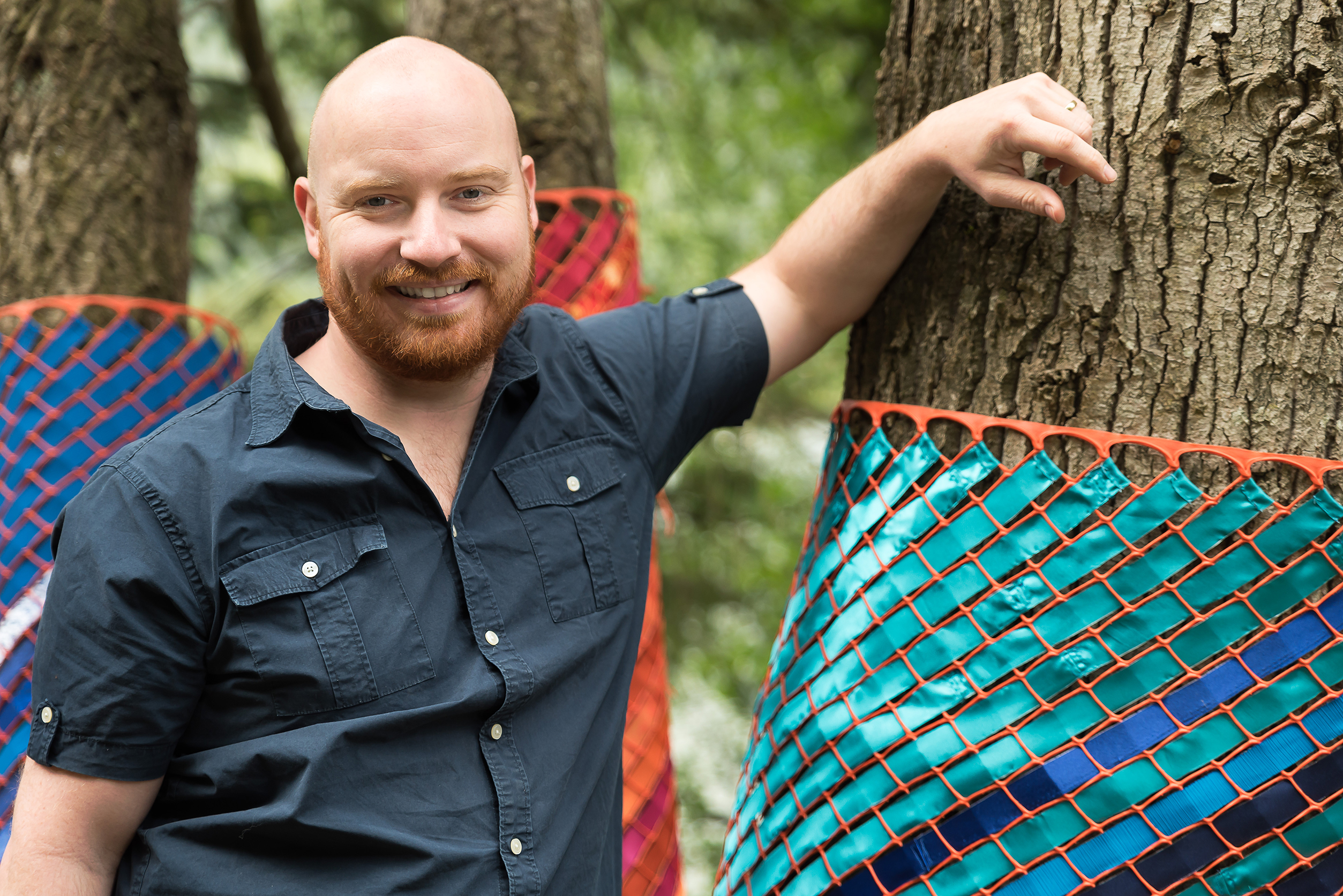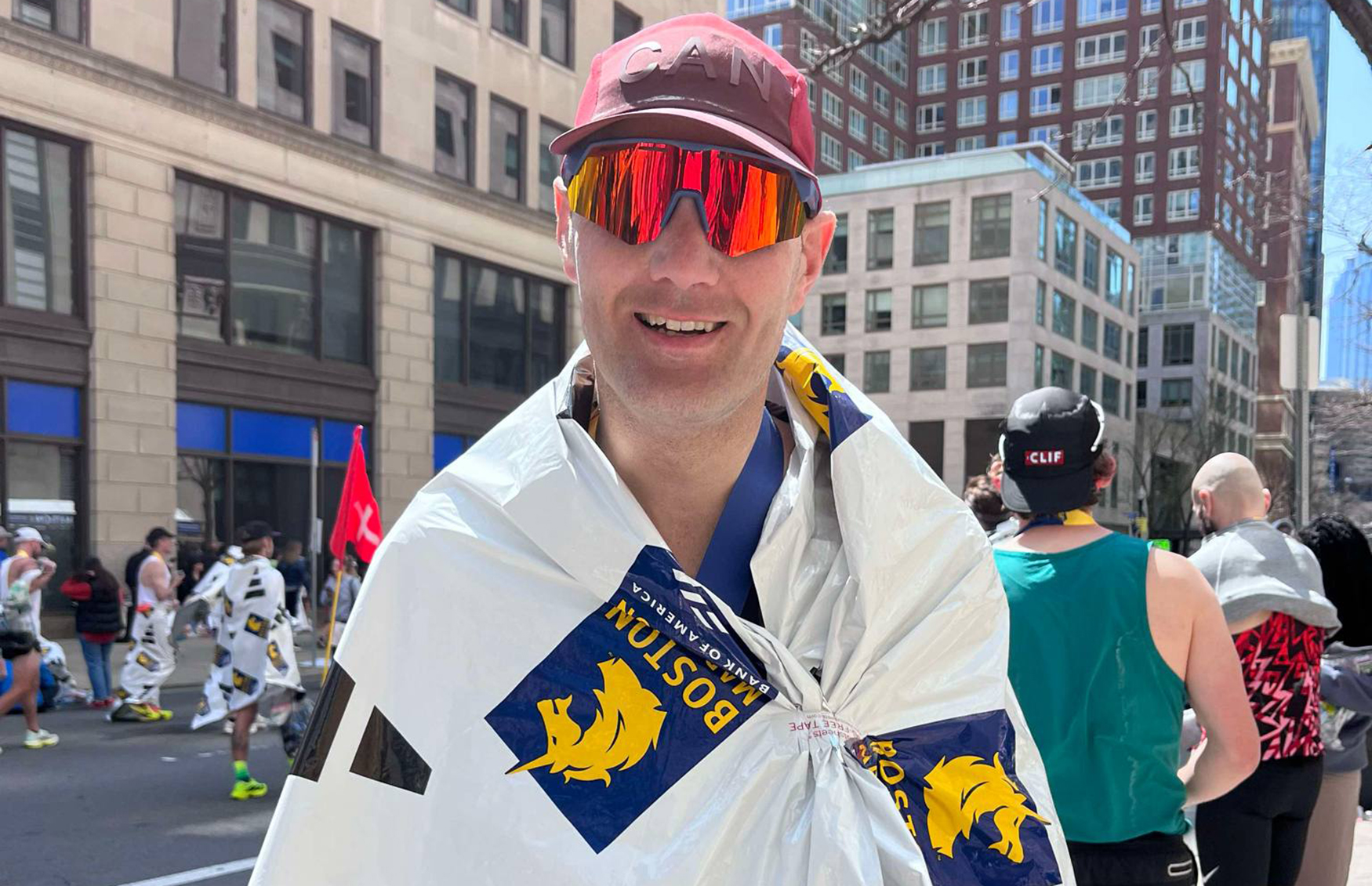New degrees of success — 30 years of bachelor’s degrees at UFV
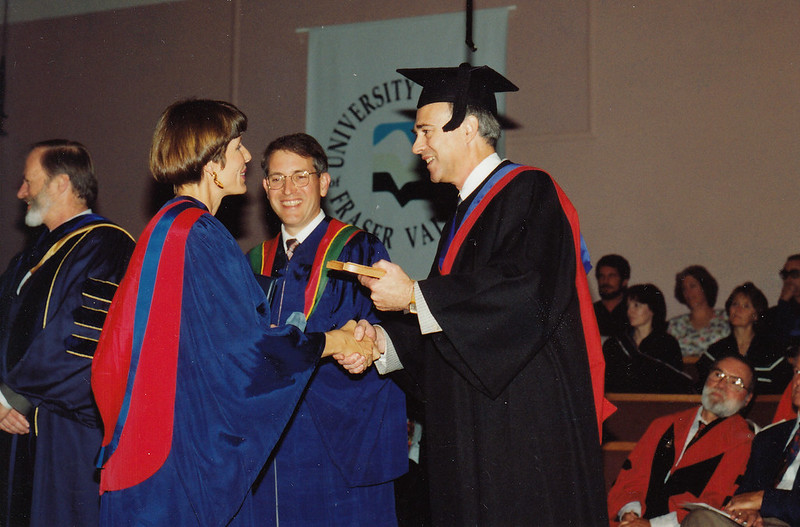
The early 1990s were an exciting time for UFV. What had been Fraser Valley College, a small two-year institution, was transformed after an intense community campaign into the University College of the Fraser Valley, adding upper-level courses and bachelor’s degrees while trying to honour its community roots.
It was time to start planning and launching degree programs, the first of which were launched 30 years ago in September 1992.
When Fraser Valley College (FVC) became UCFV, those who worked together to plan how the institution would integrate third- and fourth-year programming knew they wanted to be innovative. But they also wanted to hold onto what was best about the college model, including a wide breadth of programming, accessibility for a wide range of students, and a community focus.
A Bachelor of Arts with traditional disciplines of study was planned as a cornerstone offering, but those involved also wanted to capitalize on the strengths of UFV’s two-year, career-focused applied programs.
Dr. Jack Gaston was the first history instructor hired by FVC and he chaired the Access committee that advocated for third- and fourth-year programming.
“The Fraser Valley as a whole was changing and growing in the late 1980s and early 1990s,” he recalls. “University education was becoming increasingly important. It was becoming more of a knowledge economy. Increasingly, students regarded two years of academic studies as a down payment on a four-year degree.”
Once the move to upper-level programming was announced, Gaston and others worked to build a new type of university.
“The ethos of the college, the community focus, was our strength, along with good teaching, small classes and a growing community in the Fraser Valley. Moving into degree-level programming opened a whole new world for us, building on our strengths. It was a case of broadening what we were already good at doing. It was a very exciting time when the government announced in 1991 that FVC would expand as UCFV to offer degrees in the Fraser Valley.
“In an ironic twist of events, we were at risk of losing a great deal, but at the end of the day we made huge gains. Receiving university-college status ensured our future.”
Once university-college status was achieved, an institution-wide committee was struck that created subcommittees in areas such as teacher training, library, hiring, and liaison with a partner university. (UCFV would offer degrees in partnership with an established university during a brief apprenticeship before offering them in its own name.)
Within a year of gaining university-college status, UCFV held a conference called A Question of Balance, with the goal of articulating how the growth in academic studies would be balanced by continuing to offer non-degree programming in areas such as trades, upgrading, and applied programs.
“I don’t think our cohesion, respecting all types of programming, was ever at risk because a broad range of programs enriched the college mandate and was so well established,” recalls Gaston. “But the college model was changing and expanding further. As chair of the Access committee, I saw this start to play out across the institution. Suddenly there was money available for hiring that had not been there for years. The Humanities department, for example, morphed into discipline-based departments. The opportunity to hire new faculty and staff energized the institution.
“When recruiting we looked for well-trained faculty, and that included evidence of good teaching,” recalls Gaston. “We knew we were bringing in a new generation. We were building for our future and the future our students would find when they graduated. It was exciting! We started offering extended minors, majors, and programs in numerous arts, sciences, and career disciplines along with developing the required new courses at all levels. Quickly there was a large variety for students to choose from. The government kept giving us more FTEs and we kept filling classes.
“This was no surprise because students had been well organized and persistent with their demands for degrees at Fraser Valley College.”
A great many people who helped build a new kind of post-secondary in the Fraser Valley look back with satisfaction on their achievements, Gaston recalls.
“The campaign for a university college and subsequent development of degree-level programming was a huge undertaking, done in part off the sides of our desks.
“Our success was based on a big commitment on many people’s behalf.”
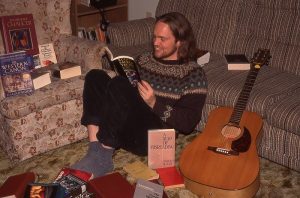
Applied focus for early degrees
When the general BA launched in 1992, so did a BA in Criminal Justice and a Bachelor of Business Administration. Applied degrees in Computer Information Systems, Social Work, and Child and Youth Care followed the next year.
And these weren’t your traditional business and criminology degrees. For years, British Columbia college diploma graduates had been frustrated that they couldn’t directly transfer into the third year of a degree program at a university, and if they did try to move to degree-level studies at another university, they had to take additional lower-level courses before being admitted.
“Our BBA was the first applied business degree in the province, except for a distance education one offered by the Open University,” recalls Brian Coulter, who was head of the Business Administration department during the planning stages. “Our associate dean at the time, Casey Sheridan, said that it wouldn’t be that hard to add two more years onto what was already a solid diploma. And we liked the fact that the first two years would retain the applied focus.
“Business programs tend to be pretty applied in the first place, but ours was even more so because of the way we designed the courses to include hands-on assignments, often for real-life clients.”
UCFV pioneered a “2+2” laddered degree format and invited diploma grads from its own program and from across the province to transfer directly into third year. The university college worked with the British Columbia Open University to develop the degree, as it needed partner institutions in the early years before it could grant degrees.
UCFV added the cooperative education option around the same time that it launched its degrees, so students could now stay for four years and could also add several paid work terms in jobs related to their field.
All the degree programs at the new UCFV started with very small groups of students.
“The first year, we had four BBA grads, then the next year there were eight, and we just kept pretty well doubling every year,” recalls Coulter.
A few years after introducing the general BBA, UCFV combined two of its strengths, business and aviation training, to offer Canada’s first BBA in Aviation degree. This specialization was aimed at giving pilots a broad education in business training, so that they had the option to take on management jobs in the aviation industry once their flying days were over.
“It’s now normal for aviation students to earn a degree and other institutions offer the option, but we were the first,” recalls Coulter.
Now that UFV has been offering business courses for more than 30 years, there are business administration grads throughout the Fraser Valley. Many went on to get their accounting designation and are working as accountants or accounting managers. Others can be found in finance, marketing, inventory control, or human resources.
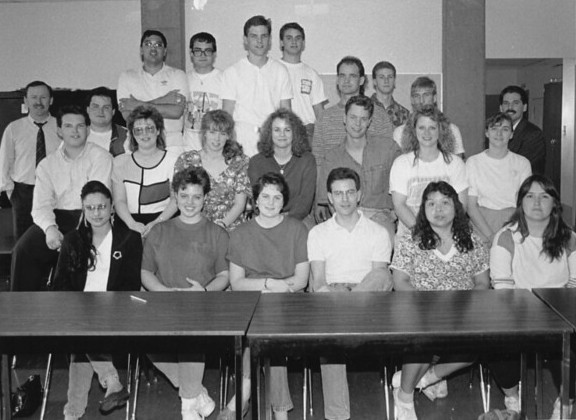
Staying student-centred
Dr. Eric Davis started as a history instructor at UFV, and also served as History department head and Dean of Arts before serving as Provost from 2009 to 2019.
Part of a cohort of new instructors hired in 1992, soon after the organization received university-college status, Davis got in on the ground floor at a time when the institution was reinventing itself.
Administrators, faculty, staff, students, and community members worked together to plan the new degrees. And the general feeling at UCFV, as these plans began to unfold, was that it was vital that the university-college honour its roots and remain connected to its community.
“I learned soon after my arrival that a post-secondary institution could be a university and still be very community-oriented. This was a very novel experience for me,” recalls Davis, who had earlier studied and taught at several older and more traditional universities. “As I settled in I grew to feel an obligation that whatever I did professionally, I should be keeping our community in mind.”
He was also struck by the cooperative spirit of those working together to build a new kind of university.
“This was by far the most collegial place I had ever worked, and it remains so. There was an egalitarian ethos.
From the beginning here I learned that you could navigate through dramatic change without fracturing the sense of community if you kept our institutional core values front and centre.”
Those core UFV values, as Davis defines them, are a student-centred approach, community service, and acting as an agent of transformation in the lives of our students and the development of Fraser Valley communities.
“We have remained absolutely committed to students, community, and the role we play as a site of transformation. That’s why we are here.
“We’ve never stopped changing at UFV, but we are able to navigate that change because we haven’t lost sight of those values. And now those values are coded into our Coat of Arms and our mission statement, so I am happy to see that they have stuck.”
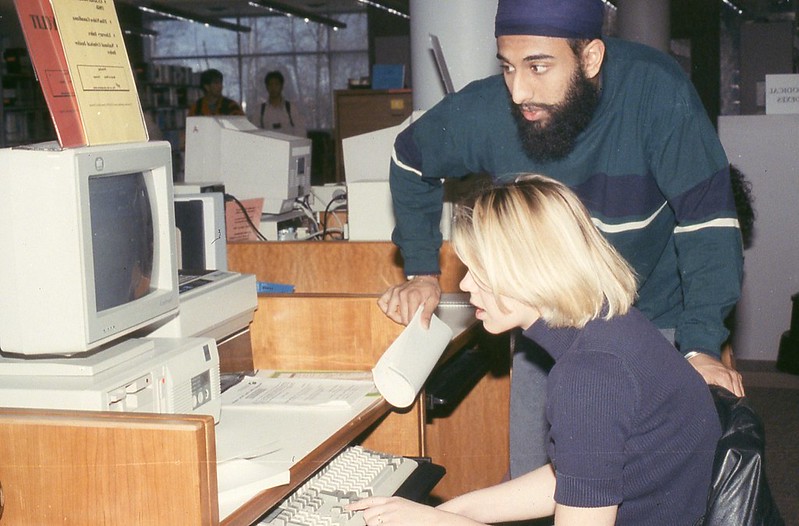
Shifting gears
Ron Dart was the second political scientist hired by UCFV, after spending several years teaching the occasional sessional course.
Dart organized many special lectures and workshops at UCFV, livening up the state of political discourse in the Fraser Valley. He brought in, among others, former federal NDP leader Ed Broadbent, and Irish activist priest Des Wilson.
Dart consciously tried to spark debate and social discourse in the Fraser Valley during his first decade on faculty. He viewed it as part of his duty as the fledgling college matured into a university college.
“When I arrived, despite it just having gained university-college status, UCFV was still quite a small rural college. But it was straining to be something bigger. There had been a huge demographic shift that started in the 1980s and continues today, with huge population growth and more suburban and urban-style development. With more and different types of people moving in, and more people having access to education, came greater expectations of what a place like UCFV could be.
“The students sensed that we were starting to get into the big leagues, so to speak, and that the educational banquet would now have a greater spread. I liken it to us shifting into second gear, whereas now, 30 years later, we’re in third or fourth gear.”
Students played a key role in planning
It was a time of great excitement, according to alumna Taryn Thomson (BA ’96), who is now president of the Vancouver Community College Faculty Association.
“A friend of mine had the honour to be on a committee responsible for hiring new professors. Students offered their opinions and were listened to. There was a feeling of promise as new professors from places all over Canada arrived, bringing their own unique perspectives. The change from Fraser Valley College to UCFV was an intoxicating time for us students.
“And we knew our professors well too. And they became, in some instances, our friends. We would go to Finnegan’s after class and continue discussing Hegel’s dialectic or Plato’s Cave Allegory or Milton’s poetry or post-modernism. It was an amazing time. We were an amazingly fortunate group of people.
For if the place had been larger, if the concept of UCFV had already been solidified in some way, the magic would not have been there. What made this time special was the fact that together we were creating the place we wanted.
“All of us had visions, not always complementary, about what should occur here. And we acted out these visions, we practised for the reality that would come; we were molding the place in the serious way we approached learning, in the care we took in invigorating the newspaper, and when we took our seats on governing bodies. Our professors heard our questions, met us in their offices, marked our papers, and watched our seminars. We were so blessed to have so much of their wisdom and time, and it is why I feel that the BA I received at UCFV was exceptional in nature.”




